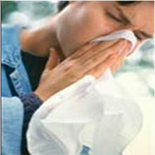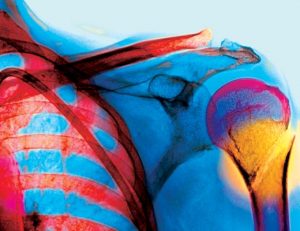Flu vaccine – sick leave canceled!
 Together with the first cold, the first diseases come to us. The most insidious of them is the flu. Flu epidemics are observed annually in the autumn-winter period. The spread of infection contributes to the large crowding of people in the premises and reduced immunity due to vitamin deficiencies and sunlight. The most reliable way to protect yourself from the disease is a flu vaccine.
Together with the first cold, the first diseases come to us. The most insidious of them is the flu. Flu epidemics are observed annually in the autumn-winter period. The spread of infection contributes to the large crowding of people in the premises and reduced immunity due to vitamin deficiencies and sunlight. The most reliable way to protect yourself from the disease is a flu vaccine.
And although it is not mandatory, it is desirable to make it. The main feature of the influenza virus is its ability to mutate. Each year, the virus is modified, so even having had the flu several times, we get only partial immunity, and remain defenseless against the new strain. It is interesting to note that once in 30-40 years the influenza virus mutates abruptly, and during this period there is a pandemic (an epidemic covering many countries and even continents). To create highly effective vaccines, the World Health Organization (WHO) conducts annual monitoring of circulating strains of influenza virus. Based on laboratory analysis, WHO formulates recommendations on the current vaccine composition. After a few months, vaccinations are ready, and it is them that should be used for vaccination, and not last year’s variant.
A few decades ago, the first flu vaccine was tested. It contained live, but weakened, viral particles. Vaccination with this drug is poorly tolerated by children, the elderly and persons with reduced immunity. Currently, “live” vaccines are almost never used. Vaccines with destroyed, lifeless viral particles replaced them. Such vaccines reduce the risk of side effects to a minimum, and at the same time create a full-fledged immune barrier to infection. All vaccines that exist today can be divided into two large groups: split (or “Split”) and subunit. Split vaccines (Vaxigripp (France), Begrivak (Germany), Fluarix (Belgium)) contain fissioned virus particles. The composition of subunit vaccines (Influvac (Holland), Agrippal (Germany), Grippol (Russia)) includes only a few components (subunits) of the virus particle. Such vaccines give the least number of side effects.
When to get vaccinated?
For the development of immunity the human body takes up to 10 days. The ideal option is to vaccinate about a month before the expected epidemic. Adults need only one injection; children up to 6 years old need to be vaccinated twice with an interval of 4 weeks.
Who should get vaccinated?
Influenza vaccination is indicated primarily for children (whose immunity has not yet been fully developed), as well as for older people (especially after 60-65 years old when immunity is already weakening). People with diseases of the immune system, diabetes, undergoing immunosuppressive therapy, vaccination is also needed. In the absence of contraindications, vaccination is also possible for pregnant women (in the later stages of pregnancy) and nursing mothers.
How to choose a vaccine?
The listed vaccinations are approximately equivalent in effectiveness and safety. Russian vaccine has an affordable price. The main thing is that the vaccine is up to date, that is, it contains particles of the virus circulating in the current year. Information about the epidemiological season for which the drug is recommended should be indicated on the packaging or in the accompanying instructions. The effectiveness of last year’s vaccines is reduced by 2-3 times!
How does the vaccination work?
Before vaccination, be sure to undergo an examination by a therapist and make sure that there are no contraindications. The fact is that vaccines are created in a chicken embryo nutrient medium, so such vaccines are contraindicated for people who are allergic to chicken protein. In addition, contraindications to vaccination are increased body temperature, the presence of acute respiratory disease. In this case, the vaccine will have to be postponed until full recovery. Flu vaccine is administered to adults in the forearm and children in the hip area.
Should we expect side effects?
Every year tens of millions of people are vaccinated against influenza in the world. The incidence of adverse reactions is extremely low (hundredths of a percent per 1,000,000 vaccines). This means that the maximum discomfort most likely you will be delivered only painful sensations in the place of vaccination. Sometimes on the 2nd day after vaccination, there may be a slight increase in body temperature, weakness in the muscles and a slight headache.
How much does the vaccine cost?
The cost of the vaccine itself ranges from 100 to 500 rubles. To this amount you must add the cost of visiting the doctor and the procedure itself. The final price depends on the institution in which the vaccination is carried out.
Where can I get a vaccination?
Flu vaccinations are offered by both private paid clinics and government agencies. On the threshold of epidemics, flu vaccination is carried out in polyclinics where they live (official registration).




